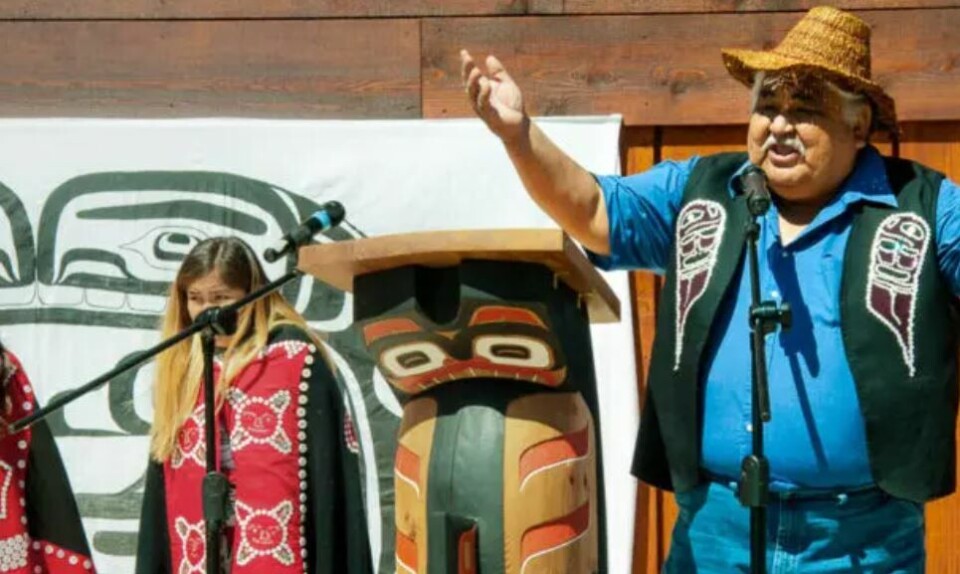
Let us control aquaculture in our waters, say First Nations
Two First Nations in British Columbia are calling for the creation of an Aquaculture Zone in its traditional territory, where it plans to administer the licensing regimes for salmon and shellfish farms while ensuring wild stocks are not overfished.
BC-based aquaculture website Sea West News reports that the Gwa’sala-‘Nakwaxda’xw Nations (GNN), whose traditional territory stretches from the northern tip of Vancouver Island to the lands and waters located around the Great Bear Rainforest in BC’s central coast, said the proposed North Island Aquaculture Zone will be a key milestone on the path to self-governance.
The call comes amid fears that Canada’s federal government may not renew licences for 79 salmon farms in BC, including give operated by Mowi Canada West in partnership with the GNN, as part of the ruling Liberal Party’s commitment to “transition” BC’s open-net pen salmon farms out of the water.
Community must decide
The licences expire at the end of June, and fisheries and oceans minister Joyce Murray has not said whether she will renew them.
Ethan Shaw, GNN’s salmon farm monitor, said that the Nations were working towards sustainability of both fisheries and aquaculture, Sea West News reports.
“They can both exist in our waters, but it should be our community that decides what that looks like for our Traditional Territory,” said Shaw.
Forced relocation
The Gwa’sala-‘Nakwaxda’xw are two Nations which were amalgamated under the Indian Act, after they were forced to relocate from their traditional territories to the Tsulquate Reserve adjacent to Port Hardy, on the north-eastern tip of Vancouver Island, in 1964.
The GNN has overlapping and/or shared territory with its First Nation neighbours – Kwicksutaineuk, Kwa-wa-aineuk, Kwakiutl, ’Namgis, Tlatlasikwala, Tsawataineuk, and Wuikinuxv.
At an event on Friday to celebrate Indigenous leadership in aquaculture and BC’s coastal marine economy, the Gwa’sala-‘Nakwaxda’xw announced that it is developing a Memorandum of Understanding (MOU) with their neighbour Nations towards building co-governance as part of a North Island Aquaculture Zone.
Study the impacts
“This is an opportunity for us to study the impacts of the farms and ensure that our fish, shellfish, seaweed and all other life remain healthy so that we have food for our community on a regular basis,” said Shaw.
The benefits of salmon farming to the GNN include custom its K’awa’tsi Marine business which has been working for the salmon farms along the BC coast for nine years, hauling feed, transporting crews, and delivering equipment and services, reports Sea West News.
The company now provides about $9 million in direct annual revenue and 23 jobs, with 16 of those filled by Indigenous people.
“Rural communities and their people need stable, family-supporting jobs to stay and support British Columbia and Canada in supplying healthy seafood to a growing world population,” said GNN Hereditary Chief Paddy Walkus.
Taking a stand
Some First Nations accuse salmon farms of spreading lice and disease to wild salmon, causing a decline in numbers of wild fish. But GNN and some other First Nations on the coast who benefit from the industry have dismissed what they call “unfounded activist claims” about the impact on wild fish, and formed a coalition to fight to the renewal of salmon farm licences.
“We have witnessed the decline of our wild fish in Smith Inlet where there are no farms,” said Walkus. “We need to take a stand and do right by our ancestors – and that means doing what it takes for our community by developing an economic base for self-government and self-determination.
“The Gwa’sala-‘Nakwaxda’x people are committed to creating and sharing a prosperous future for ourselves and for our local communities. This is what reconciliation looks like. It’s happening in communities like Port Hardy. It makes the future look hopeful.”






















































